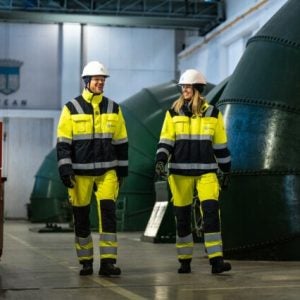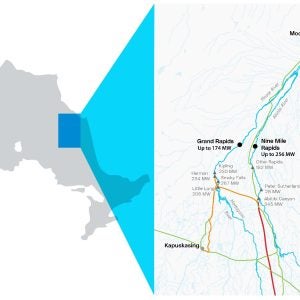The move comes almost a year after EVN entered exclusive negotiations to build three peak-power plants on the river. The Austrian utility had won an international tender competition that was launched after it had earlier submitted an unsolicited proposal to develop hydro power resources on the Devoll River.
Concession negotiations have been underway for most of this year and have been concluded with Statkraft now involved in the venture.
The plants were initially conceived with a combined installed capacity of 400MW but are now planned be 340MW in total. The hydro power scheme has a development budget of Euro950M (US$1.33B), and construction period of approximately eight years.
Owned equally by EVN and the Norwegian utility, the JV will see them build on their respective experience in the region and use their combined knowledge in the planning, construction and operation of the scheme, they said in a statement. The utilities noted that the Devoll initiative is one of Europe’s largest hydro schemes at present.
The Devoll scheme follows an energy development pact signed nearly two years ago by the Government of Albania, the federal province of Lower Austria, and EVN. Feasibility studies were undertaken in 2007. The scheme will boost the country’s hydro production by about a fifth.
About three months ago EVN and another Austrian utility, Verbund, were awarded a concession to built the 48MW Ashta project in Albania. The JV has a 35-year concession, including the construction period to 2012, and the Straflo Matrix units are being supplied by andritz for the Euro160M (US$224M) project.
Almost a year ago Statkraft signed a deal to help develop four hydro power plants in Bosnia and Herzegovina. The plants are to be built on the lower Vrbas river in the Republic of Srpska, and are expected to have a combined installed capacity of 75MW.






